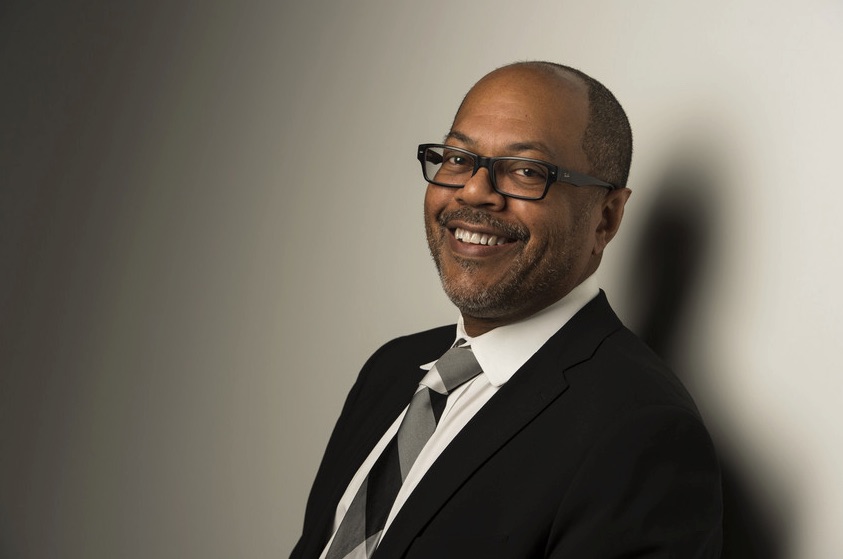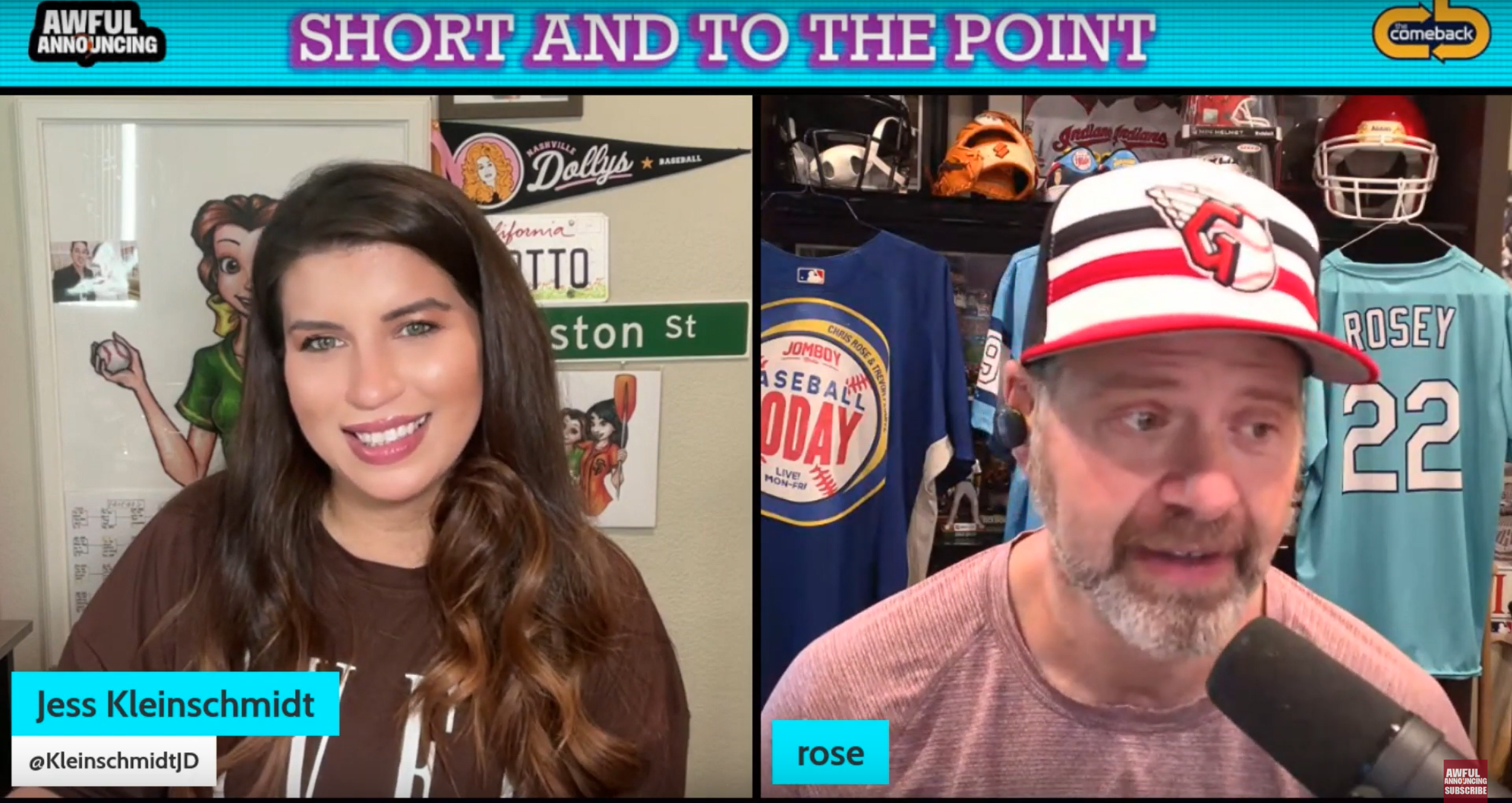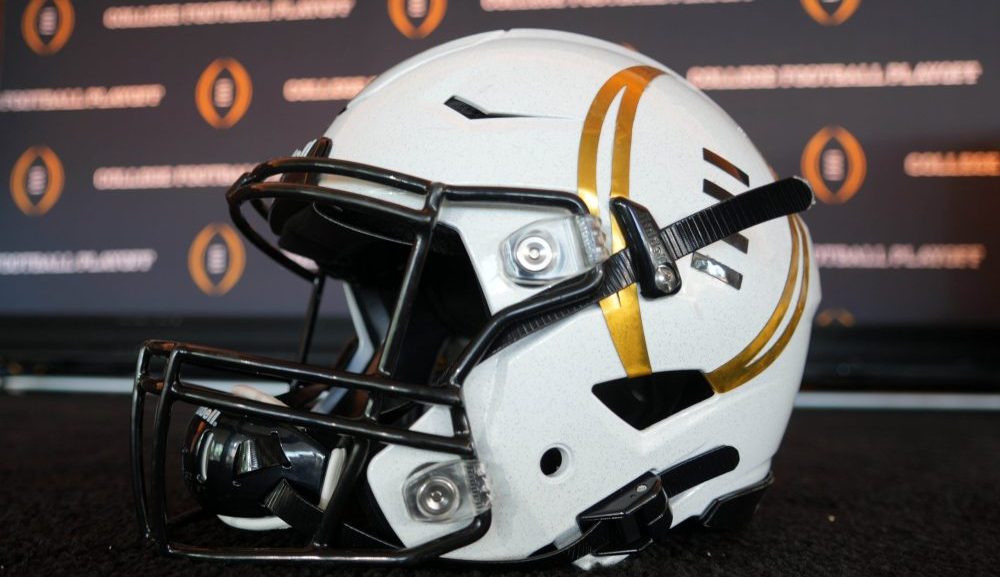The new Editor-In-Chief of ESPN’s affinity site The Undefeated, Kevin Merida, spoke with the Shirley Povich Center for Sports Journalism at the University of Maryland this week about his career and his new role at ESPN leading the highly-anticipated vertical. Here are some of his comments on Grantland, his opinion on diversity in journalism (particularly on the internet), and more. These quotes have in some cases been lightly edited for clarity and length.
On a launch date for The Undefeated and why it has taken the site so long to get off the ground:
“We’re working on it. We don’t have a launch date yet that we’re prepared to talk about but we’re building a staff and infrastructure and we’re trying to do all the things we need to do to start a new digital site. We need a newsroom that can produce content every day. It’s the equivalent of starting a newspaper or a magazine in a different era, and you wouldn’t start either of those in two weeks. You have to build the organization, the structure and the process from scratch. I wasn’t here two years ago when they first had the idea so I can’t speak to what happened before, but since I’ve been here [December], we’ve been moving really fast, hiring a lot of people and we’re moving at the speed of light. We will have a site and we will launch. If we were starting from scratch, and in some ways we are, people would marvel at how quick the process has been.”
On the demise of Grantland:
“I liked Grantland like everyone else; I was a fan of Grantland. But the Undefeated is its own separate site and it will be evaluated and tested on its own. I think there is such a commitment to The Undefeated and I’ve seen my colleagues’ great interest in it. What happened to Grantland was a process that happened before I got there and I don’t know many of the details about what that decision making process was like. I hope that our site will do a lot of things so that people who were fans of Grantland will be fans of ours too. We’ll have culture, we’ll have longform, some provocative work and really interesting innovative work digitally, new storytelling, and I hope Grantland fans will read The Undefeated too.”
On this particular opportunity:
“It was very difficult [to leave]. I had been working at the Post for 22 years and we had been doing so many great things at the Post since Jeff Bezos bought us and ‘gave us runways.’ It’s not every day that you get to create your own digital product; your own media outlet; a start-up within a big company. Sports, race and culture are all topics I’ve been interested in, been involved in the coverage and writing of, but if someone came to me and asked me to start a site on health, science and the environment, I supervised those subjects too but I probably would have said ‘maybe not that.’ I didn’t think there was something out there in the space like this, and it reminded me a lot of when I was a student and started a black college newspaper and it reminded me of the feeling of exhilaration of trying something new, not knowing what we were doing starting it from scratch, but this was a great opportunity.”
On moving from being Managing Editor of the Washington Post to The Undefeated:
“It was interesting going from managing editor to this because this was new and I began to have to think about things in a different way. When you have a blank canvas, you can have millions of ideas for the site. Ideas are pouring in from other places and I would just carry a notebook and constantly write down stuff that we could do. You can’t do everything. I’m in a hurry; I want to start a site and be successful, but the discipline is that we can’t do everything on our list of ideas right away. We have to try to get good quickly but realize that we need to be good all the time.”
On marketing to “Mainstream America”:
“ESPN is as mainstream as it gets. The idea behind the site was African-Americans are a really important demographic for ESPN because they go to ESPN for many products and it was an attempt to serve this audience in a more sophisticated way that ESPN is not doing right now. We will market ourselves as cool, different, having some swagger, and if you’re interested in delving into lives of black athletes in ways you haven’t seen before, The Undefeated will be for you. When it comes to experiencing the culture of African-Americans, including black colleges, there’s interest from all races and genders, and there will be interest from a lot of people.”
On The Undefeated’s relationship with other ESPN/Disney Properties:
“It’s not like the Undefeated exists and the rest of ESPN covering sports, race, those intersections doesn’t. We’ll be trying to carve out our identity that is distinctive and our presence hopefully will have an impact on broader ESPN, and other places within ESPN will be doing the kind of work that we do.”
“Internally, we’re producing a lot at ESPN, and just because something is published on The Undefeated doesn’t mean it’s just for us. If we’re doing a great NFL story, it’s good for them, if we’re doing an NBA story that really resonates that’s good for that group. If we do something that’s really fantastic, then maybe the Sportscenter anchors will talk about it and there’s a segment. ESPN is producing an incredible 30 for 30 on OJ, and we’re probably going to be taking that and doing something ourselves with it so there’s that synergy. We’ll be using the distribution platforms that already exist and helping to build content that is specialized for us. We’ve been talking to sales and we have to make the case that we have a really distinctive site but we can also leverage the platforms and distribution mechanisms that are in the broader ESPN family and that may even go to the broader Disney family because some of the things we might do, ABC would be interested in. The reach of ESPN will be our reach.”
On what will make The Undefeated different:
“Part of what I hope will make us different will be experimenting with forms. Taking the profile, turning it upside-down and doing it differently, we’re going to be trying to do things with tools whether it’s 360 video, audio storytelling and slideshows, and we’ll try to do things with form that help differentiate us. Another thing that we’ll be doing is we’ll be giving a lot of attention to black colleges when other places don’t.”
On Diversity in Internet Sports Writing:
“There’s been a problem with diversity in the media ever since I got in it. We’re talking about the same things we talked about when I got into the profession a long time ago and people should be frustrated with it. It’s not just the ‘internet’ because we’re all on the internet. In general, the population of sports journalists is not diverse at all compared to the leagues they cover. That should be worrisome. There’s talent everywhere. We have so many people trying to get in on The Undefeated that it’s incredible and it speaks to how wide the talent pool is. My only regret is having to let down people that are really good. There’s something there about how you find and collect talent, and I think it’s worth studying.”
On what might be an example of the work you might see at The Undefeated:
“I saw what happened with John Henson and the incident that happened in the jewelry store in Milwaukee, and I thought, ‘what I really want at some point is to have him talk about his experiences living in Milwaukee’. That would be an Undefeated kind of thing to have him write about that, what happened afterwards, how did it make him feel, etc. I saw something on Twitter where Dwayne Wade took a picture of himself reading Ta-Nehisi Coates’ book, and I immediately thought it would be great to have a conversation with both of them talking about the book, that would be an Undefeated story.”
“There’s a film coming out that we’re going to build some work around ourselves. It’s a film called Redemption Song about Howard University Soccer in the early 1970’s. They built the team with a lot of players from Africa, specifically Cameroon, and they were the first HBCU to win a Division I National Championship in any sport. But then they got stripped of those titles because of an NCAA investigation that still has some mystery around it and we’re going to build some reporting around this in conjunction with the film and you’re not going to see that anywhere else.”
After his public sit down, I had a chance to talk with Merida one on one. That chat can be seen below. Once again, quotes have been lightly edited for clarity and length.
On the term “Black Grantland”:
“Things should be able stand on their own. I don’t like the idea of something being the “black” anything. This is the Undefeated, it’s its own thing. Grantland stood on its own and we’ll be different, we won’t be Grantland and Grantland wasn’t The Undefeated. I don’t worry about the labels other than people always describing it this way and I wish they wouldn’t but that will go away once we’re up and launched and ready.”
On what he hopes the Undefeated will become:
“I think we’ll be really digitally creative, it’ll be vibrant, alive, smart and cool, it’ll be really robust and it will feel urgent and necessary and it will have a surprise every day. Our motto is ‘not conventional, never boring’, so we hope to live up to that. We’ll have a really strong cast of not only staff writers, but we’ll have a lot of contributors including some colleagues that are already at ESPN, but people who are outside of ESPN, some you have heard of and other new voices we’ll be developing.”
On the build-up for the site and the meaning of the word “surprise” for the site:
“There’s been a lot of talk about The Undefeated from the outside and at some point you have to go in your lab and really try to sharpen what you do and have your discussions and think and what you’re doing and practice before you play games. To me, I love talking about it and I’m excited about it, but in some ways people will see what we have when we unveil it. You’re not going to have to wait until launch to see our work. We’re going to start putting stuff out on social platforms and giving people a taste of who we are, but right now we’re hiring and building it and planning our ideas and we’re loaded with ideas. When I say ‘a surprise every day’ it could be a little surprise; something like ‘here’s something different and special in form’, or one photo that takes up the entire top half of a story, or we’ll tell the entire story with photos. We could also talk about a subject you’re not expecting or talk about it in a form that is experimental. It could be a writer writing about a subject that you’re not expecting him or her to write about.”
On whether the site’s history scares him or motivates him:
“It’s like you’re going into an orchestra and you’re building a big band with players coming from different places that are excited to play with each other. That helps to fuel, drive and inspire you. One of the great gifts that The Undefeated has given this crew is the name. The Undefeated is built off a Maya Angelou poem that speaks to that ‘you may encounter defeats sometimes but you will not be defeated’ or the sense of resilience, perseverance and triumph over adversity. Those are stories that athletes relate to because you will lose sometimes, but you can come back and that’s everywhere in life. Everybody can relate to the idea that ‘wow, you’re going to have some setbacks’, and hey, The Undefeated had some setbacks but basically we’re not defeated. That’s a story that African-Americans really understand because the struggle of African-Americans in this country is one with a lot to overcome. That story, and the name ‘Undefeated’ is going to drive us.”
Matt Lichtenstadter is a Maryland student (for 4 more months) that has written about many sports for many different places such as Testudo Times, World Soccer Talk, GianlucaDiMarzio.com and more. Follow him @MattsMusings1.








Comments are closed.